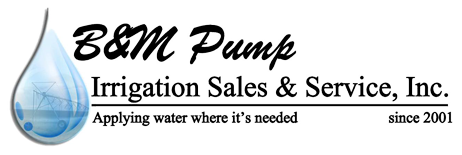How to Choose the Right Agricultural Pump for Your Needs
Irrigation is one of the most important elements of agricultural work, so agricultural properties must have all of the necessary infrastructure in place to keep their crops sufficiently watered.
Today, many irrigation systems deliver their water via pressurized systems, which makes pumps a requirement to create that pressure. In many ways, the agricultural pump is the heart of the irrigation system.
When selecting a pump, you will have a wide range of options. You’ll need to choose a pump that’s the proper type and specifications for the irrigation system you have in place. With this in mind, here’s an overview of some of the most important considerations to factor into your search for the best agricultural pumps for your needs.
Finding a pump
There are several common types of pumps: centrifugal (above-ground) pumps, submersible pumps, propeller pumps and deep-well turbine pumps. In addition to the type of pump, you will also need to consider the conditions in which the pump operates, such as the water source, the pumping flow rate, the total suction head (the lift from the surface of the water to the pump intake) and the dynamic head (the pressure supplied by the pump).
Centrifugal pumps
Centrifugal pumps are most commonly used with surface water sources or very shallow sources of groundwater. They need to be primed (filled with water) before they start pressurizing the system. These pumps can be used for horizontal or vertical operation, with horizontal pumps being the most common choice for agricultural settings, as they provide lower costs, easier installation and less maintenance.
Submersible pumps
A submersible pump in agricultural settings is a turbine pump that gets close-coupled to a watertight electric motor to avoid the use of a long drive shaft and bearing retainers that would typically be needed for a deep-well turbine pump (described below). The water enters the pump through a screen located between the motor and pump.
These pumps have a smaller diameter, making them have lower efficiency than other options. There’s also a risk of motors burning out if there’s inadequate water circulation past the motor. These pumps can be horizontally mounted in pipelines and produce less noise, making them ideal for use near residential settings.
Propeller pumps
When conditions involve low lift and high flow rate, propeller pumps are the best bet. These come in mixed flow and axial variations. The latter features an impeller that looks like a boat motor screw, while the former uses closed or semi-open impellers akin to turbine pumps.
These pumps are usually horizontally mounted on trailers for agricultural applications.
Deep-well turbine pumps
These pumps are used inside cased wells or if the surface of the water is lower than you can reach with a centrifugal pump. These pumps do not have to be primed, because they’re always placed in such a way that the intake is underwater. The pump column assembly should be aligned vertically and not touch the well casing, otherwise its vibration could cause some significant casing damage.
To learn more about these various types of agricultural pumps and how to choose the best for your desired application, contact B&M Pump Irrigation Sales & Service, Inc.
Categorised in: Irrigation
